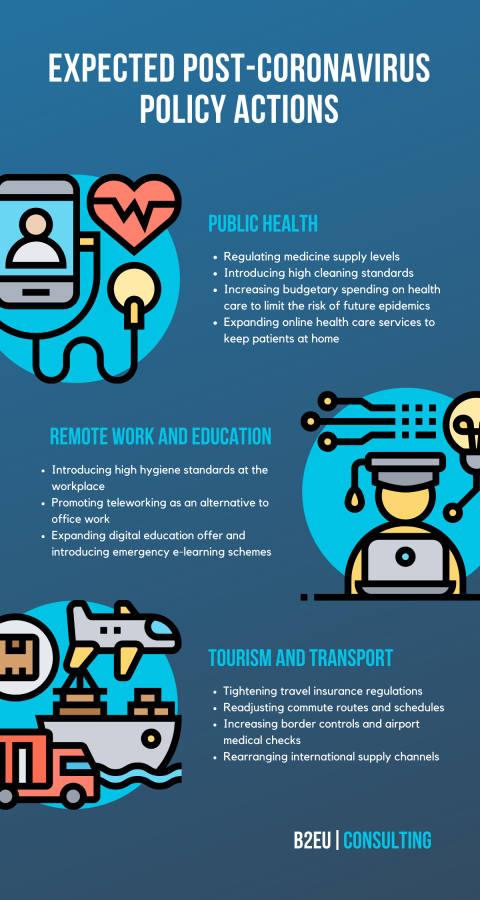News
What to Expect From Policymakers in the Post-coronavirus Reality?

As the global coronavirus epidemic has already stamped its mark on virtually every sphere of life, analysts worldwide predict people will stick to the newly established habits long after the crisis is over, inspiring significant policy shifts in such areas as public health, education and transport. Primarily, the forecast is based on the premise that every major global crisis, be it an economic, environmental or humanitarian one, always leaves its indelible legacy. This, along with the ongoing lifestyle readjustments triggered by the threat of coronavirus and occurring in societies all across the world, makes it reasonable to expect that the ongoing pandemic will not be any different than its recent predecessors.
The sector which has displayed the highest degree of susceptibility to change so far is, unsurprisingly, public health. Due to the emerging threat, people in affected areas have become accustomed to wearing face masks and using decontamination fluids. Both public authorities and private businesses around the world are already considering enforcement of mandatory cleaning standards to improve hygiene levels. Analysts predict that budgetary spending on health care will rise considerably too, as governments are expected to invest more in measures preventing future epidemics, therefore countering their detrimental impact on the economy. The risk of spreading diseases will be also limited by the introduction of advanced online medical solutions in health care.
Similar fate probably awaits the areas of office work and education. With teleworking being the only alternative for physical presence at the workplace and online learning substituting in-class activities, remote work and distance education are now becoming part of people’s daily schedule. This development is very likely to set a new standard in labour by increasing the global share of work carried out from home and making it a routine for millions of employees in the future. Educational establishments are expected to follow the suit by incorporating emergency e-learning schemes to their standard programmes, as well as implementing fully-fledged distance education platforms.
One of the areas worst-hit by the coronavirus outbreak is tourism and transport. Stringent limitations on travel, both by airborne and earth-bound means, coupled with increased border controls, have made tourism impossible in many countries across the globe. This occurrence is very likely to bring about a significant change in travel insurance schemes. In parallel, due to multiple rearrangements in urban travel, we can also anticipate the emergence of new commuting patterns.







